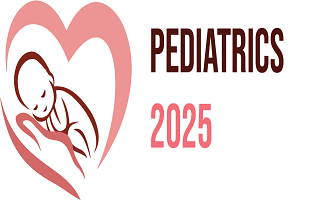Role of AI and Digital Tools in Pediatrics
Artificial intelligence (AI) and digital tools are increasingly shaping the landscape of pediatric healthcare, offering innovative ways to enhance diagnosis, treatment, and patient care. AI has proven valuable in early disease detection, such as analysing medical imaging for conditions like pneumonia, tumours, and fractures in children. AI-powered algorithms can also assist in identifying patterns in large datasets, enabling healthcare providers to predict and prevent health issues like childhood obesity, asthma exacerbations, or developmental delays. Digital tools, including telemedicine, mobile apps, and remote monitoring devices, have expanded access to healthcare, particularly for families in rural or underserved areas. Telemedicine allows pediatricians to conduct virtual consultations, addressing common conditions like colds, rashes, and mental health concerns, reducing the need for in-person visits. Mobile health apps, used by both parents and healthcare providers, help monitor chronic conditions such as diabetes or epilepsy, track growth milestones, and offer tailored health education. These tools enhance communication, provide real-time data, and empower parents to take an active role in managing their child’s health.
· AI in Pediatric Diagnostics
· AI in Personalized Medicine and Treatment
Plans
· Digital Health Tools for Monitoring and
Managing Chronic Conditions
· AI and Digital Tools for Pediatric Mental
Health
· Enhancing Pediatric Education and Health
Literacy
Related Sessions
Tags
- Digital Tools Pediatrics Conferences
- Digital Tools Pediatrics Conferences 2025
- AI and Digital Tools in Pediatrics Events
- AI and Digital Tools in Pediatrics Events 2025
- AI and Digital Tools in Pediatrics Meetings
- AI and Digital Tools in Pediatrics Meetings 2025
- AI and Digital Tools in Pediatrics Hybrid Event 2025
- AI and Digital Tools in Pediatrics Hybrid Events
- AI and Digital Tools in Pediatrics 2025
- AI and Digital Tools in Pediatrics Workshop
- AI and Digital Tools in Pediatrics Workshops 2025
- AI and Digital Tools in Pediatrics Congress
- AI and Digital Tools in Pediatrics Congress 2025
- AI and Digital Tools in Pediatrics Symposium
- AI and Digital Tools in Pediatrics Symposium 2025
- AI and Digital Tools in Pediatrics Conference 2025
- AI and Digital Tools in Pediatrics Conference
- AI and Digital Tools in Pediatrics Seminars
- AI and Digital Tools in Pediatrics Seminars 2025
- International Conference on AI and Digital Tools in Pediatrics
- International Conference on AI and Digital Tools in Pediatrics 2025
- AI and Digital Tools in Pediatrics Event in USA
- AI and Digital Tools in Pediatrics Event in USA
- AI and Digital Tools in Pediatrics Event in USA 2025
- AI and Digital Tools in Pediatrics Summit
- AI and Digital Tools in Pediatrics Summit 2025
- AI and Digital Tools in Pediatrics Webinar
- AI and Digital Tools in Pediatrics Webinar 2025
- AI and Digital Tools in Pediatrics Webinars
- Upcoming AI and Digital Tools in Pediatrics Event
